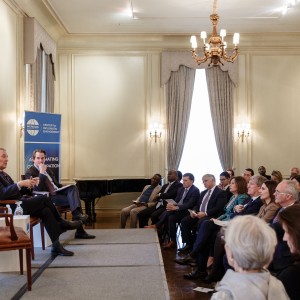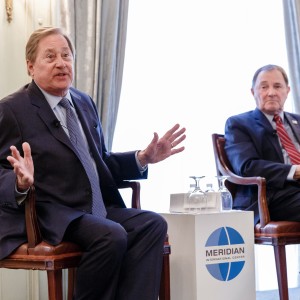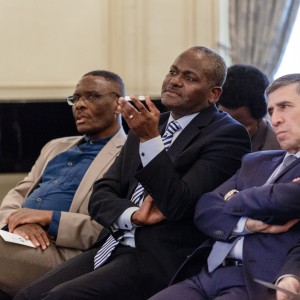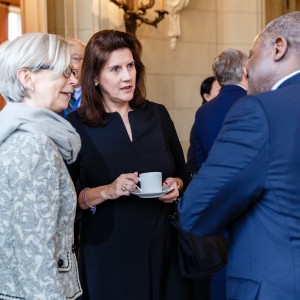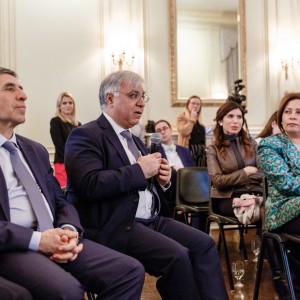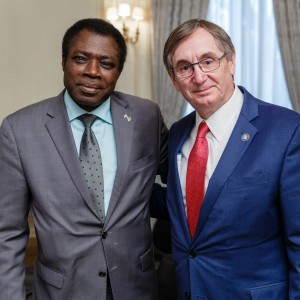State Government on the World Stage
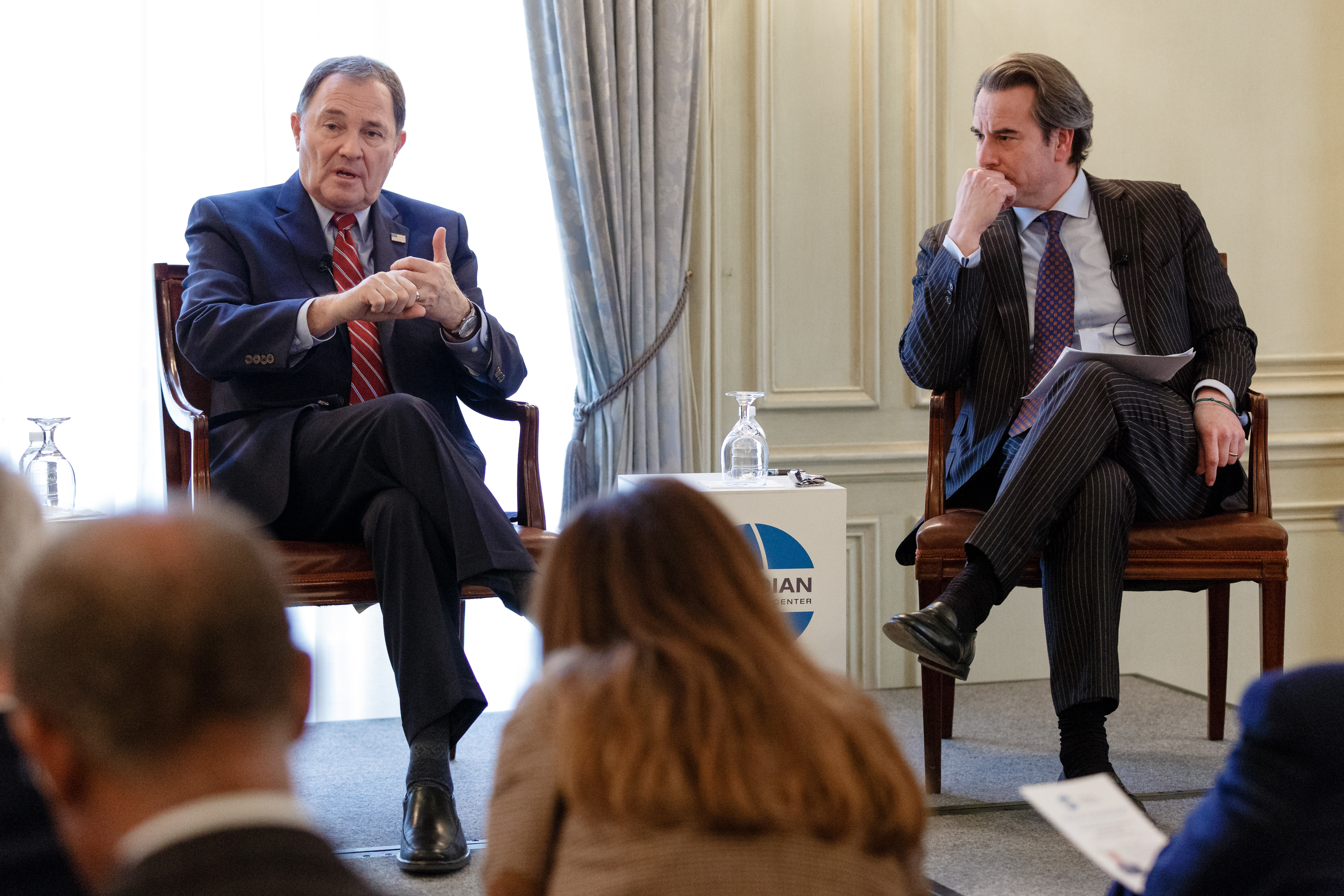
“Fair trade is in the eye of the beholder,” says Governor Gary Herbert of Utah, the current longest-serving American governor. It is incumbent upon governors to lay the groundwork for international trade and investment that will lift up the citizens of their home states. A strong proponent of international exchange, Governor Herbert has led several trade missions abroad, spurring international investment and fostering greater knowledge about Utah’s natural and human resources. “You’ve got to till the soil and plant the garden” by developing relationships for a long time, he said to the audience of 27 ambassadors and diplomats from countries around the globe. “Maybe over time, those seeds will germinate, and we’ll have a harvest” of international investment and trade. In Utah, Governor Herbert said, they do not believe that an economic downturn is inevitable. The economy can and will continue to expand, he asserted.
In Washington, D.C. for the National Governors Association’s (NGA) 2019 Winter Meeting, Governor Herbert spoke at the Insights @ Meridian program at Meridian on February 22, 2019. Meridian President and CEO Ambassador Stuart Holliday moderated the conversation. Governor Herbert highlighted the importance of state governments in the U.S. system, pointing out that states are laboratories, experimenting on how best to solve problems. Many of these solutions are then adapted and adopted for use in other states. One of the reasons that organizations like NGA is so important is because it enables governors to share state solutions with one another across borders. In response to a question from H.E. Carlos Dos Santos of Mozambique about the benefits of belonging to NGA, Governor Herbert cited that on issues like energy, Utah has benefited from the expertise of other states ad they explore the use of wind and solar energy.
Unlike federal-level politicians, governors must go beyond politics to find the best solutions for their states, not adhere strictly to partisan positions. Governor Herbert enjoys a positive relationship with the “citizen legislature” in Utah, which has worked alongside his office to find efficiencies in state government, resulting in a smaller government workforce now than when he took office. States should not be the junior partners to the federal government; the federal system was designed to allow states to control their own destinies. Governor Herbert takes issue with the current primary system for presidential elections, suggesting that this practice of early primaries in a handful of states privileges these states’ citizens over others. He suggested that the U.S. should adopt a system of rotating primaries.
Ambassador David Mulhall from Ireland asked Governor Herbert about the dynamic between mayors and governors, noting that mayors of large cities have often received him on his visits around the country. Governor Herbert responded that is he is a “bottom-up kind of guy” and ensures that he is listening to the cities and the countries to get policy right.
Governor Herbert was joined by Meridian’s former Chairman and current Diplomatic Engagement Advisory Committee Member Governor Jim Blanchard, who served as Governor of Michigan from 1983-1991. Governor Blanchard and Governor Herbert discussed the positive relationships that most governors have with one another, often working across state lines to advance policy that will benefit their home states. Governor Blanchard offered the anecdote of working with the other Great Lakes governors on issues relating to water usage and pollution, as well as with their Canadian counterparts.
The Meridian Center for Diplomatic Engagement’s Insights @ Meridian initiative is designed to provide ambassadors and other senior diplomats with an intimate opportunity to hear directly from administration leaders, members of Congress, state and local officials, and business visionaries on vital policy issues of the day, furthering the mission of the newly-formed Center for Diplomatic Engagement. Meridian is grateful for the partnership of the National Governors Association in putting together this program.
See More PhotosProject Timeline
Project summary
| State Government on the World Stage | February 2019 | |
|---|---|
| Number of Attendees: | 40 |
| Regions: | Western Hemisphere |
| Countries: | Bahamas, Algeria, Belgium, Chile, China, Costa Rica, Finland, Gabon, Iraq, Ireland, Jordan, Republic of Kosovo, Libya, Liechtenstein, Luxembourg, Malawi, Burma, Mozambique, Pakistan, Serbia, Thailand, Togo, United Kingdom, Vietnam |
| Impact Areas: | Business and Trade, Civic Engagement, Foreign Policy, Governance and Transparency |
| Program Areas: | Diplomatic Engagement |
| Partners: | Diplomatic Corps, Public Sector |
